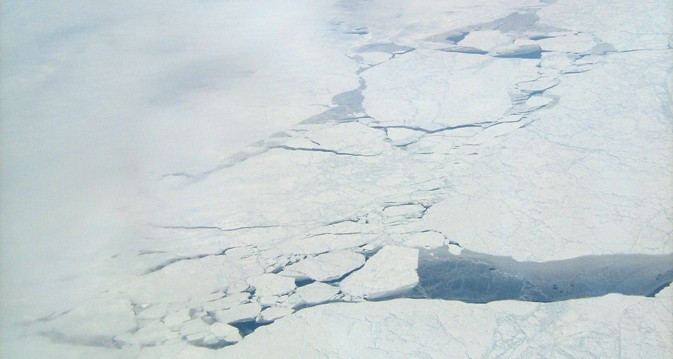Arctic Region Holds Huge Amount of Methane, Says Nasa

Nasa scientists have discovered an excessive amount of methane in the Arctic region. They claim as the earth's climate warms, the methane frozen in reservoirs stored in Arctic tundra soils or marine sediments, is released into the atmosphere and the harmful gas can add to global warming.
"It's possible that as large areas of sea ice melt and expose more ocean water, methane production may increase, leading to larger methane emissions," said Eric Kort, postdoctoral scholar at the Keck Institute of Space Studies at the California Institute of Technology in Pasadena.
Scientists discovered this when they were analysing data collected from the HIAPER Pole-to-Pole Observations (HIPPO) aircraft. HIPPO collects the atmospheric measurements from the Earth's surface to an altitude of 8.7 miles. It was designed to improve our understanding of where greenhouse gases are originating and being stored in the Earth system.
During five HIPPO flights over the Arctic from 2009 to 2011, scientists found increased methane levels in the low altitudes over the remote Arctic Ocean, north of the Chukchi and Beaufort Seas. To know exactly from where the methane was coming, scientists analysed several other sites and they found that methane came from the Arctic surface waters.
Earlier, another group of researchers had also predicted high concentrations of methane in Arctic surface waters, but no one had predicted that these enhanced levels of ocean methane would find their way to the overlying atmosphere.
Kort said that future studies will be needed to understand the enhanced methane levels and associated emission processes and to measure their total contribution to overall Arctic methane levels.
"While the methane levels we detected weren't particularly large, the potential source region, the Arctic Ocean is vast, so our finding could represent a noticeable new global source of methane," said Kort.
"As Arctic sea ice cover continues to decline in a warming climate, this source of methane may well increase. It's important that we recognize the potential contribution from this source of methane to avoid falsely interpreting any changes observed in Arctic methane levels in the future," he added.
© Copyright IBTimes 2024. All rights reserved.






